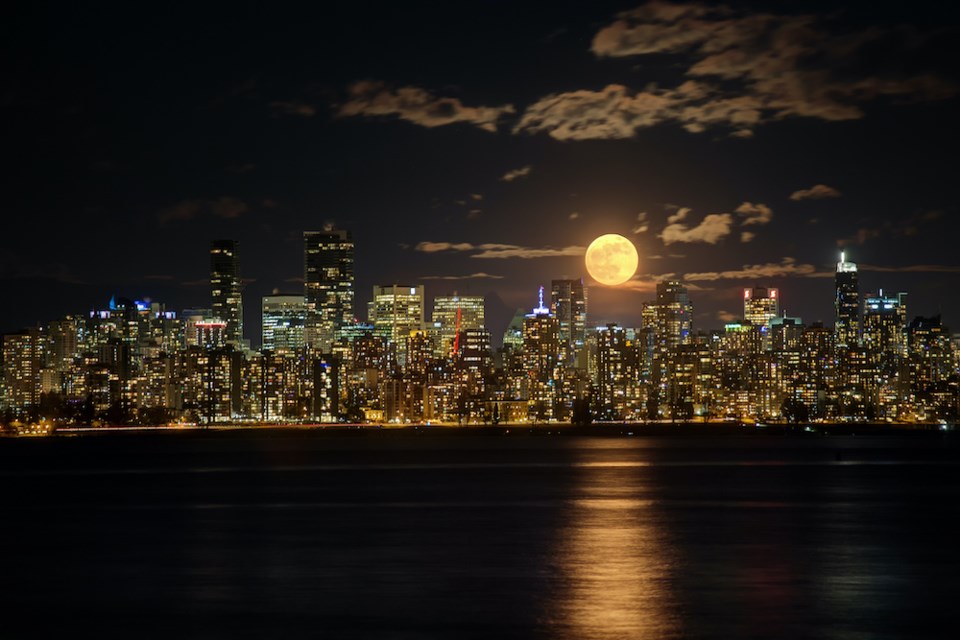Are you ready to howl?
Metro Vancouver stargazers will be treated to a massive full Wolf Moon on Thursday night.
January's full moon is commonly referred to as the "Wolf Moon" regardless of the year. In fact, it has been called this name for decades.
"In Native American and early Colonial times, the Full Moon for January was called the Full Wolf Moon. It appeared when wolves howled in hunger outside the villages," explains The Old Farmer's Almanac.
However, the publication adds that there is no evidence to support that wolves howl due to hunger. With this in mind, it notes that they tend to howl more during the winter months. Instead of howling for hunger, the canines howl in order to define territory, locate pack members, and gather for hunting.
The full moon is set to rise to its fullest point in Vancouver at 11 a.m. on Thursday, Jan. 28, but viewing will be better later that night. However, the evening forecast includes some cloudiness, which could impede viewing the celestial body in all its luminous glory.
Super blood wolf moon
A couple of years ago, the full wolf moon coincided with a total lunar eclipse, and the dazzling astral event was known as the "super blood wolf moon." The full moon travelled under the northern half of earth's shadow to produce the total lunar eclipse, and the moon was also at its closest distance to Earth which made it a 'supermoon.' As such, the three celestial events coincided to produce the rare astral display.
Stargazers should opt to travel as far away from city lights as possible in order to avoid light pollution that will obscure the clarity of heavenly bodies. While this works best the in more remote places, anywhere that has a higher elevation will also provide more ideal viewing conditions.



